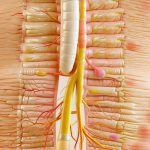Prostate health is often an overlooked aspect of men’s wellness until issues arise. Many factors influence prostate function, including genetics, age, and lifestyle choices – crucially, diet plays a significant role. A proactive approach through dietary modifications can contribute to overall prostate well-being, potentially reducing risks associated with common conditions. It’s about incorporating foods known to support healthy cellular function, reduce inflammation, and provide essential nutrients that the prostate needs to operate optimally. This isn’t about restrictive dieting; it’s about smart food choices integrated into a sustainable lifestyle.
The good news is that building a prostate-supportive diet doesn’t have to be complicated or time-consuming. In fact, dedicating a few hours on Sunday to prepping foods can set you up for a week of healthy eating and peace of mind. This article will explore specific food groups and preparation strategies that make incorporating prostate-friendly nutrition manageable and enjoyable. We’ll focus on practical steps you can take immediately to improve your dietary habits, emphasizing whole, unprocessed foods as the foundation of good health. Remember, consistency is key, and even small changes can accumulate into significant benefits over time.
Building Your Prostate-Friendly Pantry
A cornerstone of prostate health lies in embracing a diet rich in phytonutrients – naturally occurring compounds found in plants that offer protective benefits. These aren’t miracle cures, but they provide cellular support and may help mitigate inflammation, which is linked to many prostate concerns. Think beyond simply adding supplements; the power resides in whole foods working synergistically. Preparing these core elements on Sunday makes weekday meals infinitely easier.
Foods to prioritize include: tomatoes (especially cooked), broccoli and other cruciferous vegetables, berries (blueberries, strawberries, raspberries), nuts (walnuts are particularly good), seeds (pumpkin and sunflower), green tea, and fatty fish like salmon. These foods provide a wealth of vitamins, minerals, and antioxidants crucial for overall health and prostate function. Prepping these doesn’t necessarily mean elaborate cooking; it can be as simple as washing berries, chopping vegetables, portioning out nuts, or marinating fish.
A key component is incorporating healthy fats. While avoiding excessive saturated and trans fats is important, essential fatty acids – like omega-3s found in salmon, flaxseeds, and walnuts – are vital for reducing inflammation and supporting cellular health. Sunday prep could involve baking a large portion of salmon to use throughout the week or preparing a batch of trail mix with nuts and seeds. Don’t underestimate the power of simple preparation; it’s often the difference between healthy intentions and consistent execution.
Sunday Prep Strategies: A Practical Guide
The beauty of Sunday food prepping is its adaptability. It doesn’t have to be an all-day affair, but a dedicated 2–3 hours can yield substantial benefits for your health and schedule. Here’s how to maximize your prep time: First, make a list – based on the foods mentioned above. Plan meals around these core ingredients rather than trying to force prostate-friendly foods into existing unhealthy habits. Next, focus on bulk preparation of versatile components.
Consider these steps: 1) Roast a large tray of cruciferous vegetables (broccoli, cauliflower, Brussels sprouts). They’ll stay good for several days and can be added to salads, stir-fries, or enjoyed as a side dish. 2) Cook a batch of quinoa or brown rice – versatile grains that provide fiber and essential nutrients. 3) Portion out snacks like berries, nuts, and seeds into individual containers for easy grabbing during the week. 4) Marinate fish fillets (salmon, mackerel) ready to be baked or grilled on busy weeknights. 5) Prepare a large salad base with leafy greens and chopped vegetables – adding protein and dressing just before serving keeps it fresh.
This isn’t about perfection; it’s about progress. Even prepping one or two key ingredients can significantly reduce decision fatigue during the week, making healthier choices more likely. Remember to store everything properly in airtight containers to maintain freshness and prevent spoilage. The goal is to create a system that works for you – adjust these suggestions based on your preferences and dietary needs.
Boosting Your Intake: Specific Food Focuses
Let’s delve deeper into specific food categories, outlining how to incorporate them effectively into your weekly routine. Tomatoes are rich in lycopene, an antioxidant linked to prostate health. Cooking tomatoes actually increases the bioavailability of lycopene, so incorporating cooked tomato products – like pasta sauce or roasted tomatoes – is beneficial. Sunday prep could involve making a large batch of homemade tomato sauce using fresh tomatoes and herbs, providing a base for several meals throughout the week.
Cruciferous vegetables, such as broccoli, cauliflower, kale, and Brussels sprouts, contain compounds called glucosinolates, which are converted into substances that may help protect against cancer cells. Roasting these vegetables brings out their natural sweetness and makes them more palatable. Beyond roasting, consider adding chopped cruciferous veggies to soups, stews, or even smoothies (kale blends well!). Don’t underestimate the power of variety – rotating through different cruciferous options ensures you’re getting a wider range of nutrients.
Berries are packed with antioxidants that combat free radicals, protecting cells from damage. They’re incredibly versatile and easy to incorporate into your diet. Simply washing and portioning berries on Sunday provides a convenient snack option, ready to grab when cravings strike. Add them to yogurt, oatmeal, or smoothies for an extra boost of nutrition. Consider freezing some berries to extend their shelf life and ensure you always have a supply on hand.
Hydration & Beverages: Beyond Water
While focusing on solid foods is essential, don’t overlook the importance of hydration and beverage choices. Green tea, rich in polyphenols, has been linked to various health benefits, including potential prostate protection. Brewing a large batch of green tea on Sunday and refrigerating it allows for easy access throughout the week. Consider adding lemon or ginger for flavor.
Minimize sugary drinks, which contribute to inflammation and offer little nutritional value. Water should be your primary beverage choice. Infusing water with fruits like cucumber, berries, or citrus slices can make it more appealing and encourage greater consumption. Herbal teas are another excellent option – chamomile, peppermint, and ginger tea all provide hydration and potential health benefits.
Prioritize consistent hydration throughout the day. Carry a reusable water bottle as a reminder to drink regularly. Aim for at least eight glasses of water per day, adjusting based on your activity level and climate. Avoiding excessive alcohol consumption is also crucial for prostate health. Remember, small changes in beverage choices can have a significant impact on overall well-being.
Simple Meal Ideas for the Week
To illustrate how Sunday prep translates into weekday meals, here are some ideas: 1) Salmon with roasted broccoli and quinoa. 2) Tomato sauce pasta with a side salad. 3) Berry and yogurt parfait with granola and nuts. 4) Stir-fry with cruciferous vegetables, tofu or fish, and brown rice. 5) Salad with grilled chicken or salmon and a vinaigrette dressing.
These meals are quick to assemble because the core components have already been prepared. This frees up your time and energy for other activities, reducing stress and promoting a healthier lifestyle. Don’t be afraid to experiment with different flavor combinations and ingredients – the goal is to create meals that you enjoy and support your health.
Remember: Dietary changes are most effective when combined with regular exercise, adequate sleep, and stress management techniques. This holistic approach promotes overall well-being and contributes to optimal prostate health. These suggestions are not a substitute for professional medical advice; consult with your healthcare provider if you have any concerns about your prostate health.





















